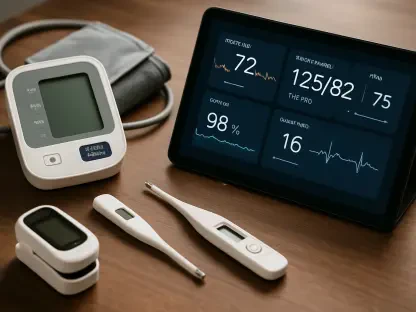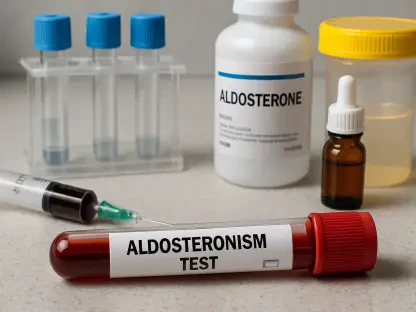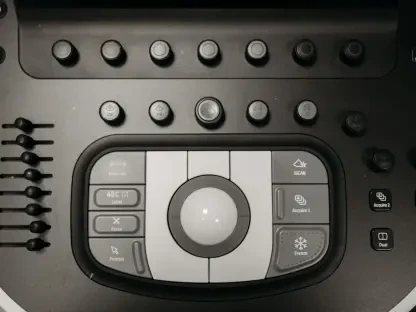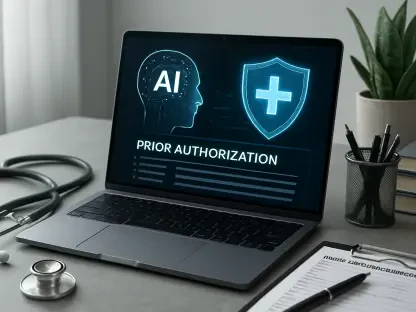Doug Collins Commits to Fixing VA’s Troubled EHR Rollout if Confirmed
President Donald Trump’s nominee for Secretary of the Department of Veterans Affairs, Doug Collins, has pledged to prioritize the problematic rollout of a new electronic health record (EHR) system if confirmed. During the Senate Committee on Veterans Affairs hearing, Collins emphasized his intention to reassess the EHR deployment with a fresh perspective. He hinted at potentially accelerating its timeline compared to the schedule under the Biden administration. Collins underscored the importance of the prompt completion of the EHR modernization initiative, originally contracted to Cerner in 2018 and subsequently inherited by Oracle following Cerner’s acquisition. The ambitious project aimed to modernize the VA’s health record system, yet it has encountered significant technical difficulties and errors linked to patient safety. This has led to a suspension of new deployments since 2023. Only six VA medical centers have implemented the Oracle EHR more than four years after its initial deployment in October 2020. Legislative and investigative scrutiny, including reports from the VA’s Office of Inspector General, has highlighted various issues with the project, such as errors potentially contributing to patient harm and even a patient’s death.
Legislative and Investigative Scrutiny
The EHR modernization effort quickly grabbed the attention of legislators and investigators after the project faced significant delays and rising costs. The VA’s Office of Inspector General reported that these issues were not simply superficial errors but had profound implications, including dangers linked to patient safety. In particular, the OIG highlighted instances where technical glitches and system errors had the potential—or in some cases, were directly responsible—for causing patient harm. These complications prompted an exhaustive suspension of new deployments in 2023 as the seriousness of the project’s flaws became clearer. The intensified scrutiny was not limited to reports and investigations alone. The modernization effort’s escalating costs and prolonged timeline evoked strong bipartisan criticism. Senator Thom Tillis expressed his concern candidly, describing the situation as a “bipartisan, multi-administration disaster.” Collins took heed of this criticism, acknowledging the severity of the issues and the urgent need for resolution. His nomination hearing unveiled his resolve to involve both Oracle and VA personnel, including clinicians, to undertake a comprehensive review and problem-solving approach to rectify these longstanding troubles.
Despite the complexities, Collins conveyed a sense of optimism, stressing that the project could be expedited without compromising quality. He emphasized that a thorough evaluation of the existing information would be crucial in ensuring patient safety and system efficacy. Legislators across parties have echoed a shared sentiment, pointing to the critical need to enhance the VA’s EHR system. This concerted legislative and investigative scrutiny has underlined the importance of reliable data management in ensuring the well-being of veterans, making it a key focus for any future Secretary of the Department of Veterans Affairs.
Costs and Delays: A Bipartisan Concern
The high costs and prolonged timeline of the EHR modernization have sparked concern among lawmakers from both sides of the aisle. With costs ballooning and technical issues causing delays, the effort has been under fire for its inefficiency. This bipartisan critique underscores the broader frustration with the project’s lack of tangible progress. A particularly costly aspect of the EHR rollout has been the repeated need for system overhauls and fixes to address the emerging problems. As of the most recent reports, the delays and cost overruns have amounted to a substantial financial burden. These mounting issues have reinforced the perception that the modernization effort is a mismanaged project. This financial strain has ignited discussions on Capitol Hill, with legislators calling for a reevaluation of the project’s execution. Collins, addressing these criticisms, highlighted the need for improved coordination between involved parties, including Oracle, VA leadership, and frontline clinicians.
Collins’ acknowledgment of the high costs and delays came with a pledge to reform the approach to the EHR project, ensuring that taxpayer money is utilized appropriately and VA healthcare infrastructure is upgraded efficiently. His plan involves applying a critical review to streamline the deployment process while addressing the root causes of the technical issues. By presenting a clear path forward, Collins aims to restore confidence in the project, emphasizing accountability and efficient resource management. His commitment represents a bipartisan effort to overcome the hurdles and bring the EHR modernization project back on track.
Fresh Perspective and Potential Acceleration
Doug Collins’ nomination comes with a promise to infuse a fresh perspective into the EHR modernization project. Recognizing the urgency of the matter, Collins proposed a reevaluation of the deployment timeline, potentially accelerating the completion dates compared to the original schedule. This statement marks a significant shift from the pace set under the Biden administration, highlighting Collins’ commitment to bringing about rapid improvements. Despite the scale of the task, Collins remains optimistic about the feasibility of expediting the project. He stressed the importance of balancing speed with quality control, ensuring that the accelerated timeline does not come at the expense of patient safety and system integrity. Thoroughly assessing existing information and leveraging current technological advancements are central to his approach.
Collins also emphasized the collaborative aspect of his strategy, aiming to involve all relevant stakeholders, from Oracle executives to VA clinicians. He believes that fostering open communication between these entities will help identify and address the critical issues hampering the project’s progress. Ensuring seamless integration of the new EHR system remains a top priority, as it plays a crucial role in the transition of service members into VA care post-active duty. Collins’ emphasis on a fresh perspective and potential acceleration reflects the broader commitment to fixing the EHR rollout woes and enhancing the VA’s healthcare infrastructure.
Optimism Amid Challenges
President Donald Trump’s nominee for Secretary of Veterans Affairs, Doug Collins, has promised to focus on correcting the troubled rollout of a new electronic health record (EHR) system if confirmed. At the Senate Committee on Veterans Affairs hearing, Collins stressed his plan to review the EHR deployment with a fresh outlook. He suggested he might speed up its timeline compared to the Biden administration’s schedule. Collins highlighted the necessity of completing the EHR modernization project, initially contracted to Cerner in 2018 and later acquired by Oracle. The project aimed to update the VA’s health record system but faced major technical difficulties and errors affecting patient safety. These issues led to halting new deployments since 2023. As of now, only six VA medical centers have implemented the Oracle EHR since its first deployment in October 2020. Legislative and investigative bodies, including the VA’s Office of Inspector General, have identified numerous problems with the project, including errors that could lead to patient harm and even death.









